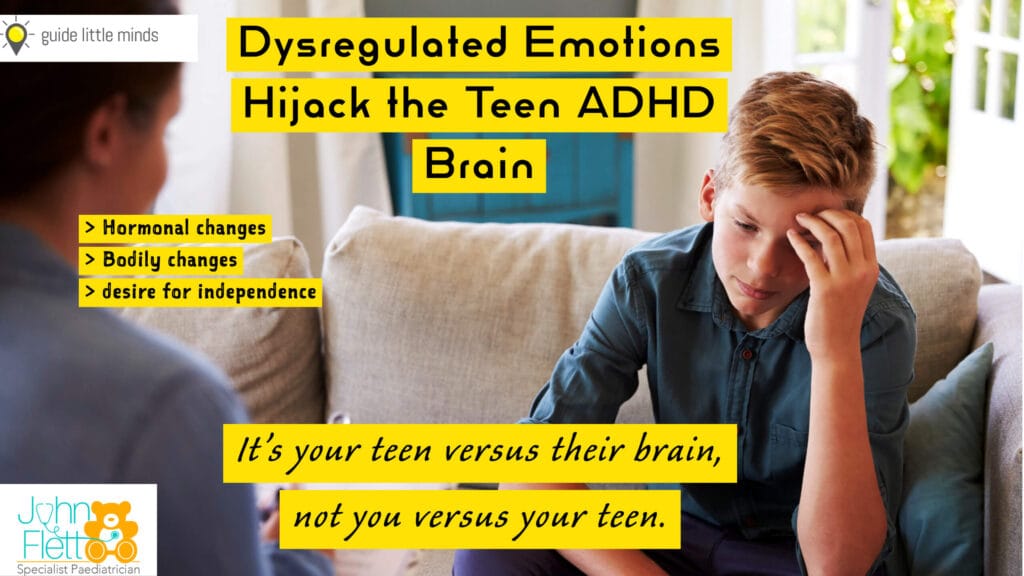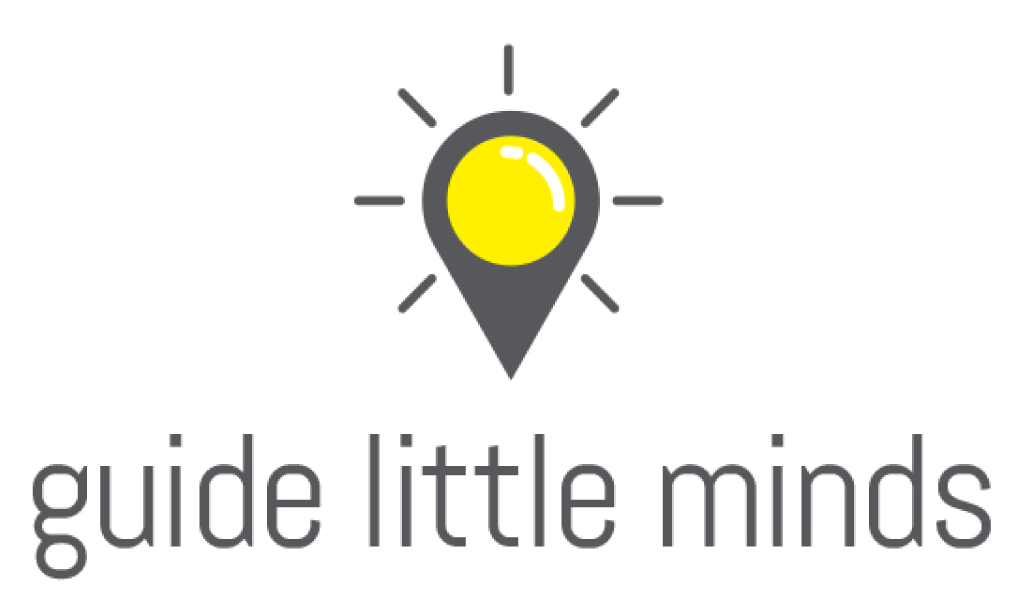How Dysregulated Emotions Hijack the Teen ADHD Brain

Emotional dysregulation – one of the most impairing symptoms of ADHD — causes teens to experience volatile, uncontrollable, and explosive feelings. How can parents best support their teens when emotions are intense and unpredictable? Through education, understanding, and compassion.
Adolescence is an unrelenting succession of highs and lows. The swings between euphoria and misery, jealousy and generosity, irritation and vulnerability come quick and complex — and often. These swings can hit like a wrecking ball for teens with attention deficit hyperactivity disorder (ADHD) and its relatively common partner, emotional dysregulation.
Emotional dysregulation infiltrates all parts of teen life – from friendships and romantic relationships to school performance and social media use.
Though a powerful medium for connection, social media use may have a real, negative impact on teen mental health, as ongoing reports continue to show.1 Cyberbullying, exposure to extremism, and manipulation (sexual and financial) are risks inherent in online use, as addiction stems from an over-reliance on online relationships.
Emotionally dysregulated teens – already more sensitive to peer rejection and acceptance than are neurotypical peers – may be particularly vulnerable to these risks and effects of social media use.
The first step to protecting teens from online relationship risks is to understand how ADHD and emotional dysregulation impact all of their relationships.
Describe your teen for each of the following. If they represent the second description of each item with a description of pretty much or very much it indicted, they may need the most help.
1. Some kids stay positive even when homework is difficult or time-consuming. Some kids get annoyed.
2. Some kids stay cool no matter what the irritation. Some have a short fuse and get easily frustrated by even small things.
3. Some kids take unexpected events in their stride. Some get stressed out if something does not go right.
4. Some kids let things “roll off their backs.’ Some kids scream or “lose it” when they get angry.
Understanding Emotional Changes in Adolescence
The pre-teen and teen years mark a period of significant, overwhelming change.
- Hormonal changes contribute to mood fluctuations and increased emotionality. During puberty, monthly drops in estrogen levels exacerbate ADHD symptoms in girls.
- Bodily changes and sexual development are often sources of embarrassment and confusion.
- Increased academic demands, often accompanied by decreased parental scaffolding, cause stress.
- A desire for independence, questions around identity, and an expanding social life (and desperation for sensitivity to peer acceptance) all characterize adolescence.
- Teens with ADHD struggle to navigate through the above, plus the emotional dysregulation associated with the condition.
The Neurobiology of ADHD Emotional Dysregulation
In neurotypical brains, the limbic system – responsible for emotional and behavioral responses – works with the prefrontal cortex (PFC) – linked to cognitive control and modulation of emotional equilibrium, allowing for goal-directed behavior.
But in ADHD brains, these regions and processes essentially compete for dominance. We want the PFC to win as much as possible, but the limbic system often overpowers it. The result is emotional dysregulation, which, while not part of the diagnostic criteria for ADHD, is increasingly considered to co-occur with the condition frequently.5
Signs of Emotional Dysregulation
In teens with ADHD, emotional dysregulation can manifest in the following ways:
- Emotional impulsivity
- Low frustration tolerance; avoidance of difficult situations
- Irritability; quickness to anger
- Difficulty balancing positive and negative emotions
- Increased emotional excitability and speed of escalation; delayed return to baseline
- Difficulty inhibiting responses, especially negative emotions; outbursts
- Defensiveness
- Verbal and physical aggression
- Emotional volatility
- Swearing
- Socially inappropriate, embarrassing behaviors
Emotional dysregulation may be prolonged in ADHD brains due to delayed maturation; it is estimated that children and adolescents with ADHD trail behind their neurotypical peers by a few years. This means that, compared to neurotypical teens, those with ADHD may lack access to the same executive function levels and skills essential for emotional regulation.
Moreover, hormonal changes fuel emotional dysregulation and influence ADHD’s presentation. The combination may be severe enough to be mistaken for bipolar disorder, reactive attachment disorder, or borderline personality disorder.
Consequences of Emotional Dysregulation in Teens with ADHD
Emotional dysregulation has far-reaching consequences. It is connected to increased risk for the following:
- Explosive peer and family relationships
- Risky sexual behaviors
- Self-harm and substance abuse
- Peer rejection and sensitivity to it
- Internalizing problems, including depression, anxiety, shame, and rejection sensitivity.
Emotionally Dysregulated Teens in Romantic Relationships
Emotional dysregulation can destabilize as teens begin to explore romantic relationships and physical intimacy. The patterns that teens develop in these early relationships often persist into relationships of adulthood. Since teens with ADHD are at risk for adverse relationship outcomes later in life, it is essential to identify and address unhealthy habits and patterns early on.
Teens with ADHD tend to have more romantic partners and shorter relationships than teens without ADHD. They date and have intercourse earlier, engage in more casual sex, and report having more unprotected sex than their non-ADHD peers.
Compared to neurotypical peers, teens with ADHD are also more likely to develop a negative conflict resolution style, which appears to stem from emotional dysregulation. In a relationship, a teen who struggles to inhibit their responses might withdraw as a coping mechanism. They may also “comply” with what they think their partner emotionally expects of them. This game of hide-and-pretend can only go on for long before inhibition fails and issues are addressed in antagonistic ways.
It’s understandable, then, that teens with acute ADHD symptoms (more significant emotional dysregulation) are more likely to rate their relationships poorly than peers with less severe ADHD symptoms. They also report less emotional intimacy and low relationship satisfaction.
How to Support Emotionally Dysregulated Teens
1. Recognize and depersonalize expressions of emotional dysregulation. These are uncontrolled, emotional explosions. Don’t take rude comments from your teen, no matter how hurtful. Depersonalize the comment, and you’ll find a struggling teen.
2. Monitor your teen’s social media and screen use. There’s no absolute clarity on what constitutes social media addiction, but ask yourself the following questions:
- To what extent does my teen use social media to feel better? Do they feel more included or more rejected afterward?
- How difficult is it for my teen to disengage from social media?
- To what extent does my child’s social media use interfere with academics, time with family and friends, and other responsibilities?
3. It’s your teen versus their brain, not you versus your teen. Lead with this principle to limit frustration and misunderstandings. This approach will also help your teen understand that their dopamine-seeking and emotionally hyper-aroused brain won’t always support their goals – emptying the dishwasher or doing homework – and that workarounds are necessary.
4. Disengage when tensions run high. Consider it impossible for your teen to calm down in the heat of the moment. Take the initiative to disengage and step away but ask your teen to reconvene when things calm down.
5. Celebrate your child’s abilities and passions, whether art, sports, volunteer work, or niche knowledge of an obscure subject. Focusing on their strengths and masteries will help your child feel good about themselves.
6. Normalize your teen’s struggles. Teens don’t want to feel different from their peers. Please help your child recognize that everyone has challenges and that they are not alone in dealing with ADHD and emotional dysregulation. If your teen ignores you, direct them to reputable online sources and influencers who are informing the world on all things ADHD.
7. Don’t despair. Remember that your child is socially and emotionally behind their peers, but things will come together in time. As you wait it out, don’t fall into the “this is never going to get better” trap. The part of the brain that is responsible for good judgment doesn’t mature until the mid-20s for most people. It is unproductive to expect consistent emotional control from your teen as these skills develop. Instead, have — and communicate — compassion for yourself and your child. You’re all on the same team.

